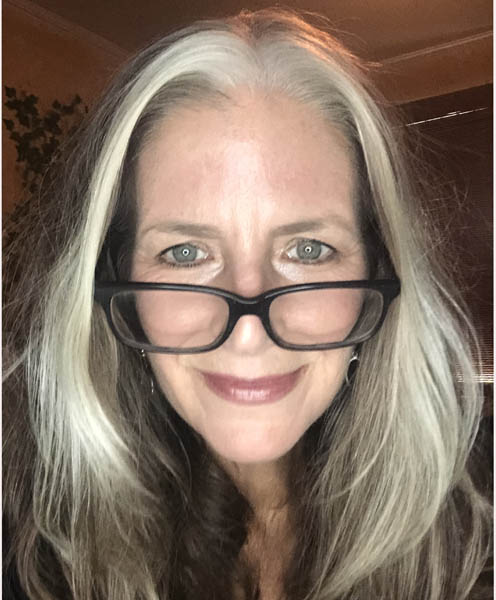By Margaret Evans, Editor
Before sunup last Thursday morning, I dragged my creaky self, in my creaky station wagon, over to the Lowe’s parking lot to fetch my daughter. She’d been bussed back to Beaufort overnight with 80 local teenagers who’d just spent the week at Young Life camp in the mountains of Virginia.
As we drove home in the dawn’s waxing light, my bleary-eyed girl told me all about the wonders she’d experienced that week, and I felt my mama-heart squeeze with that familiar, bittersweet knowledge that your child has grown and changed in your absence . . . and is now safe and sound again. With you.
Back at home, she took to her bed and slept for several hours – Jeff was still dozing, too – and I sat at my computer working quietly, feeling grateful, and basking in the cozy sense that all was right with the world.
Our house . . . is a very, very, very fine house . . . with two cats in the yard . . .
It was an illusion, of course.
That evening, while Jeff was making pizza in the kitchen – bless his heart – I sat on the floor in front of the TV as President Obama spoke about the shootings of Alton Sterling and Philando Castile. I couldn’t get close enough to that TV screen: I wanted to look the man in the eye, maybe hold his face in my hands. I had this urgent need to connect with my president as a human being, and through my president, my fellow Americans. It was hard to see through the sting of tears.
I thought Obama gave a good speech – sobering and substantial and fair-minded. Near the end, he said this:
“I actually, genuinely, truly believe that the vast majority of the American people see this as a problem that we should all care about. And I would just ask those who question the sincerity or legitimacy of protests and vigils and expressions of outrage, who somehow label those expressions of outrage as quote unquote political correctness, I just ask folks to step back and think: what if this happened to someone in your family? How would you feel? To be concerned about these issues is not political correctness, it’s just being American and wanting to live up to our best and highest ideals.”
What if this happened to someone in your family? How would you feel?
For me, that was the money quote. The closer. The crucial punch to the gut. But even as I listened, I knew Obama’s question would be lost in the swirl of statistics and political-ish commentary that had come before it. I knew what they would be saying on Fox News and on talk radio, and what they would be counter-saying on MSNBC and in the New York Times. I could almost hear the spinners spinning up. And in my mind, I could already see the same old arguments and aggressions that would explode across social media, as we all crouched in our virtual trenches, firing barbs from behind the barricade of our computer screens – which protect our bodies but leave our souls dangerously exposed.
Anguish tightened around my throat like a python.
My daughter, now lounging on the sofa behind me, had lifted her eyes from her smart phone to focus on the larger screen. “Oh, great,” she said. “Something else happened while I was at camp?”
I gave her a quick, sketchy rundown of the two latest shootings, and my sweet girl – the fresh-faced happy camper, so full of wonder and inspiration only a few hours earlier – replied, “America sucks.”
Excuse me?
“America does NOT suck,” I snapped back. “And by the way… don’t say suck.”
I’m sure she could tell my heart wasn’t in it.
Fortunately, Jeff’s homemade pizza was ready right around then. Unfortunately for our daughter, it had peppers on it. She thinks peppers suck.
The next morning, I rose early again, sat down at my computer, and immediately learned that five police officers had been killed at a “peaceful protest” in Dallas while I slept.
(I swear, I’m almost afraid to go to bed anymore, and doubly afraid to check my newsfeed in the morning.)
Again, the tears came fast and hot. Again, I thought of the president’s question: What if this happened to someone in your family? How would you feel?
It’s a personal question. Devastatingly personal. And now I find myself wondering how we can possibly start thinking of each other in personal terms again.
Because we must. I really believe me must.
But how can we start thinking of each other as people? Just plain people? Not black people or white people or law enforcement people . . . not gays or straights or transgenders. . . not Muslims or Jews or Christians . . . not conservatives or liberals, Republicans or Democrats . . .
Not discrete, antagonistic groups estranged from one another, vying for power and control . . .
But people. Just people. People with things in common – important things like hearts and souls, memories and dreams, loves and losses. People who come from families. Who create families. People who pick up their kids in the Lowe’s parking lot before dawn, accidentally put peppers on their ‘welcome-home’ pizzas, and wish for those kids a better America – one that does not so often, lately, suck.
How can we unlearn what we’ve learned? How can we learn to see each other personally, when every day, every hour, we are encouraged by the omnipresent (increasingly shameless) Big Media to view each other politically – through the obscuring gauze of the various labels we all wear, whether we want them or not?
Learning to do this – to see each other personally – seems absolutely necessary to me if we are to survive as a nation, but I am all out of answers at the moment.
I took the question, along with the president’s question, to Facebook, where a friend offered the following comment:
“Part of the problem is that we should all feel this WAS our family that it happened to . . . in every situation.”
Yes, of course we “should.” And in a perfect world, we would. But we have never lived in a perfect world, and people do not easily think of strangers as family. It just doesn’t come naturally, and to expect that it does – or will – is to set ourselves up for failure . . . to hold out an ideal that, while noble, is likely unattainable to all but the saints in our midst.
But what we can do – what does come naturally, even to us sinners – is to imagine ourselves in someone else’s shoes. Because underneath all the labels – and beneath our very real differences and disagreements – we all wear shoes.
What if this happened to someone in your family? How would you feel?
It’s simple Golden Rule stuff, y’all. “Do unto others as you would have them do unto you.” Treat the families of others as you’d want others to treat your family. And imagine how you would feel if this – what happened to Alton, Philando, the police officers in Dallas – happened to someone in your family.
It really cuts through the BS, doesn’t it? The hashtags and the hateful memes and the half-thruthy headlines? Cuts right through ‘em.
I understand why people are attached to their labels. We all have our special interests to protect and pursue. And Lord knows the media like to keep us labeled up – and stirred up and riled up and, most of all, tuned in. But what would happen if we ripped off those labels, like band aids from a wound that’s festering, not healing? Sometimes, a wound needs fresh air to heal.
It hurts like hell to rip off a band aid. But I wonder what would happen if enough of us, from across the social/political spectrum, did it anyway. What if we chose to expose our wounds? To make ourselves humble and vulnerable to each other – sharing and listening and learning from each other, instead of bunkering down with our anger and resentment, our made-up minds, and our self-righteous pride?
It would be damned difficult. We are creatures of habit, and tribal by nature, and Big Media (including social media) would fight us every step of the way.
But we might just get this raging infection under control.
Margaret Evans is the editor of Lowcountry Weekly. (Read more of her Rants & Raves here or visit her blog at www.memargaret.com)





